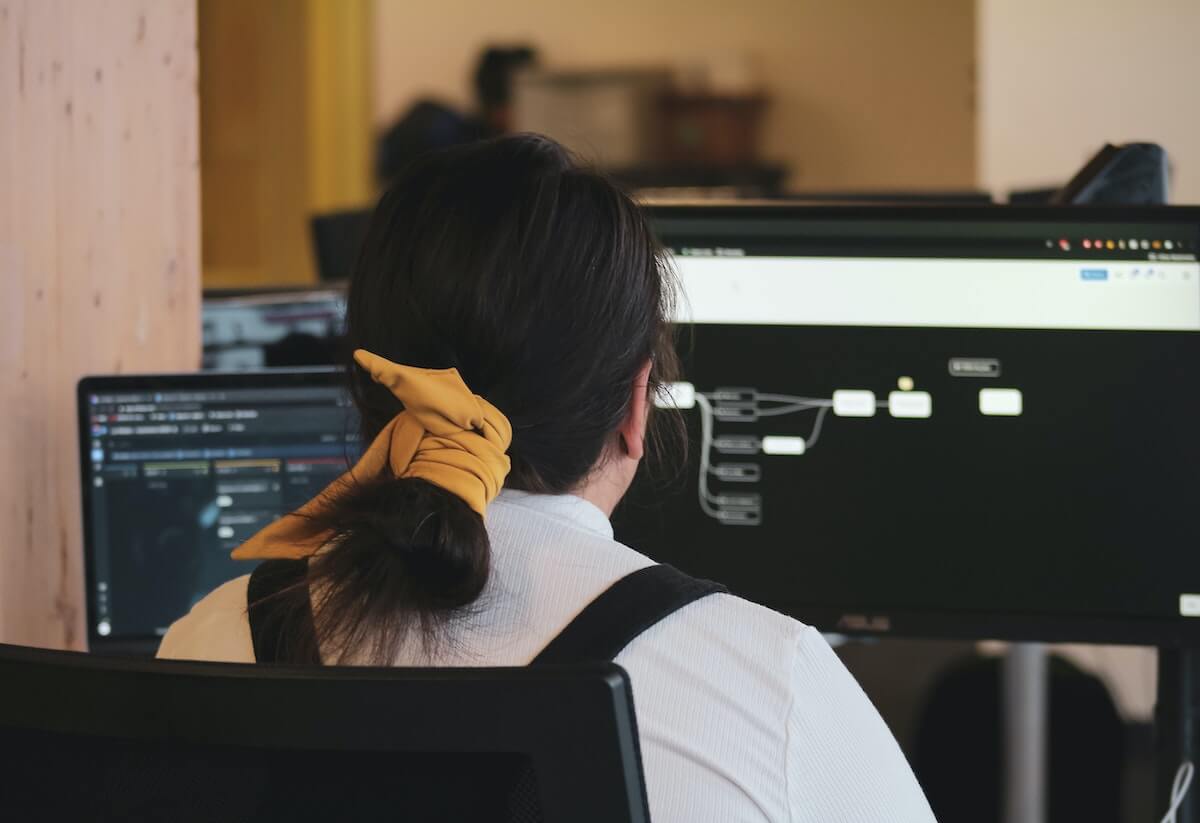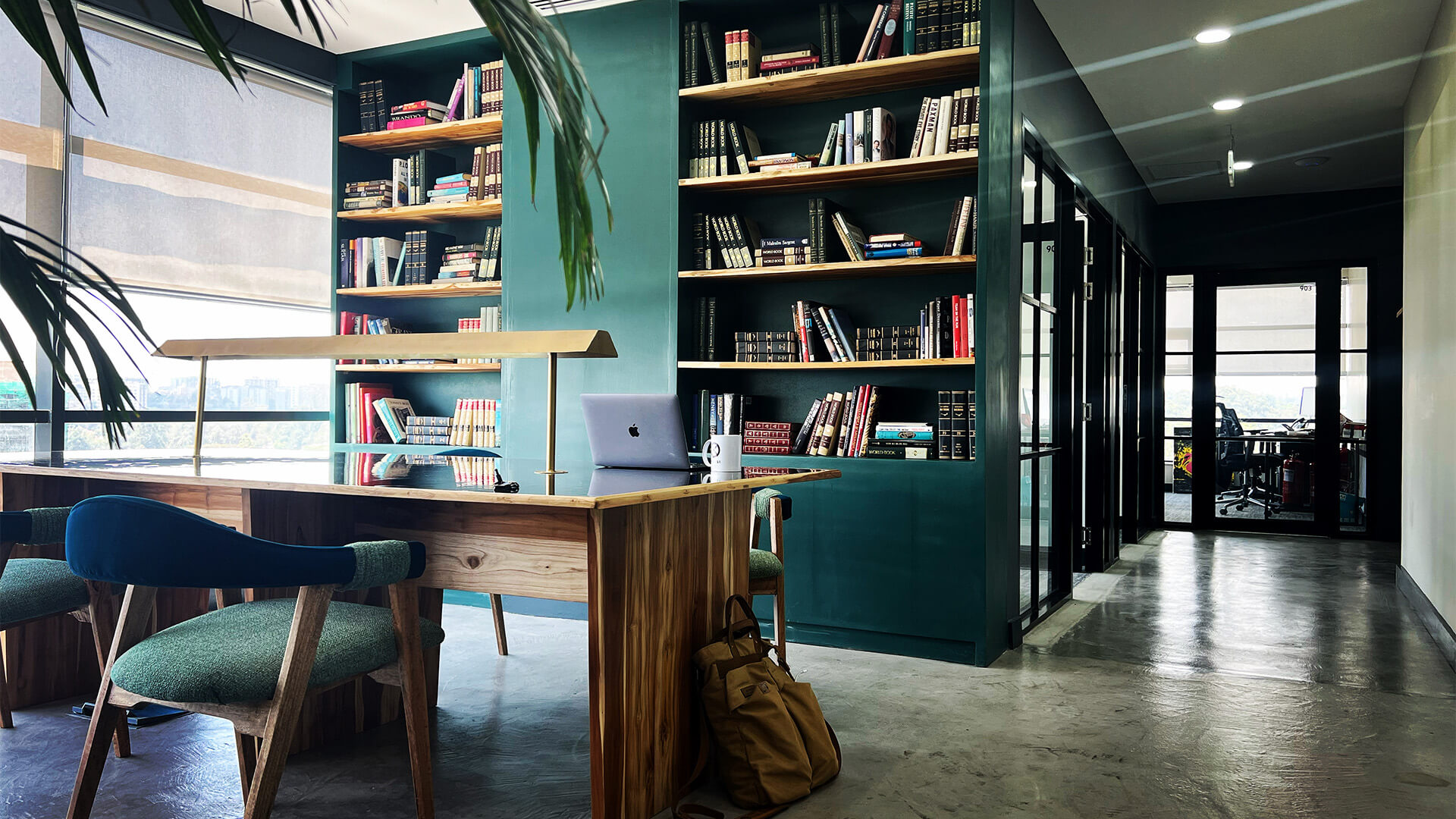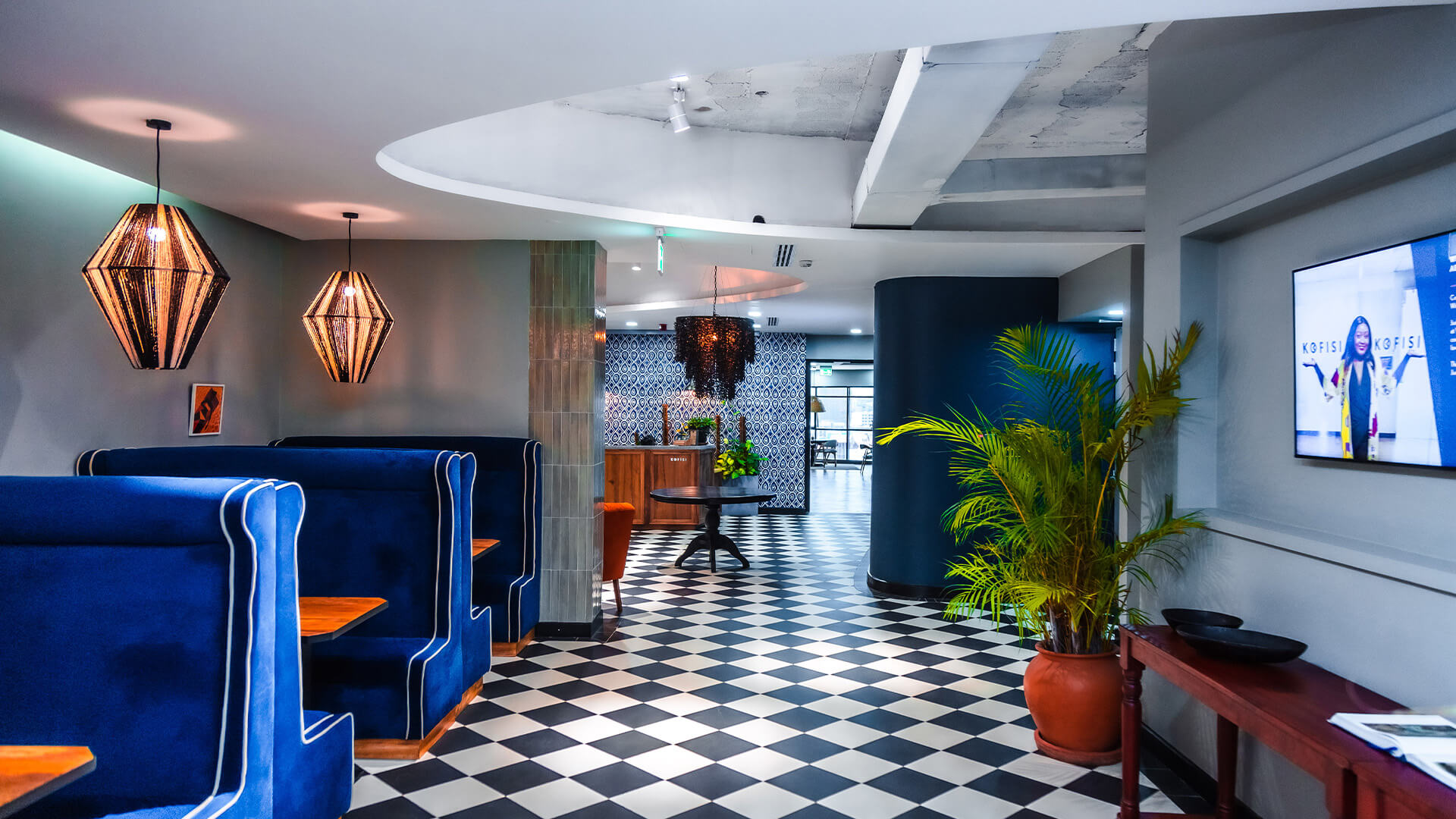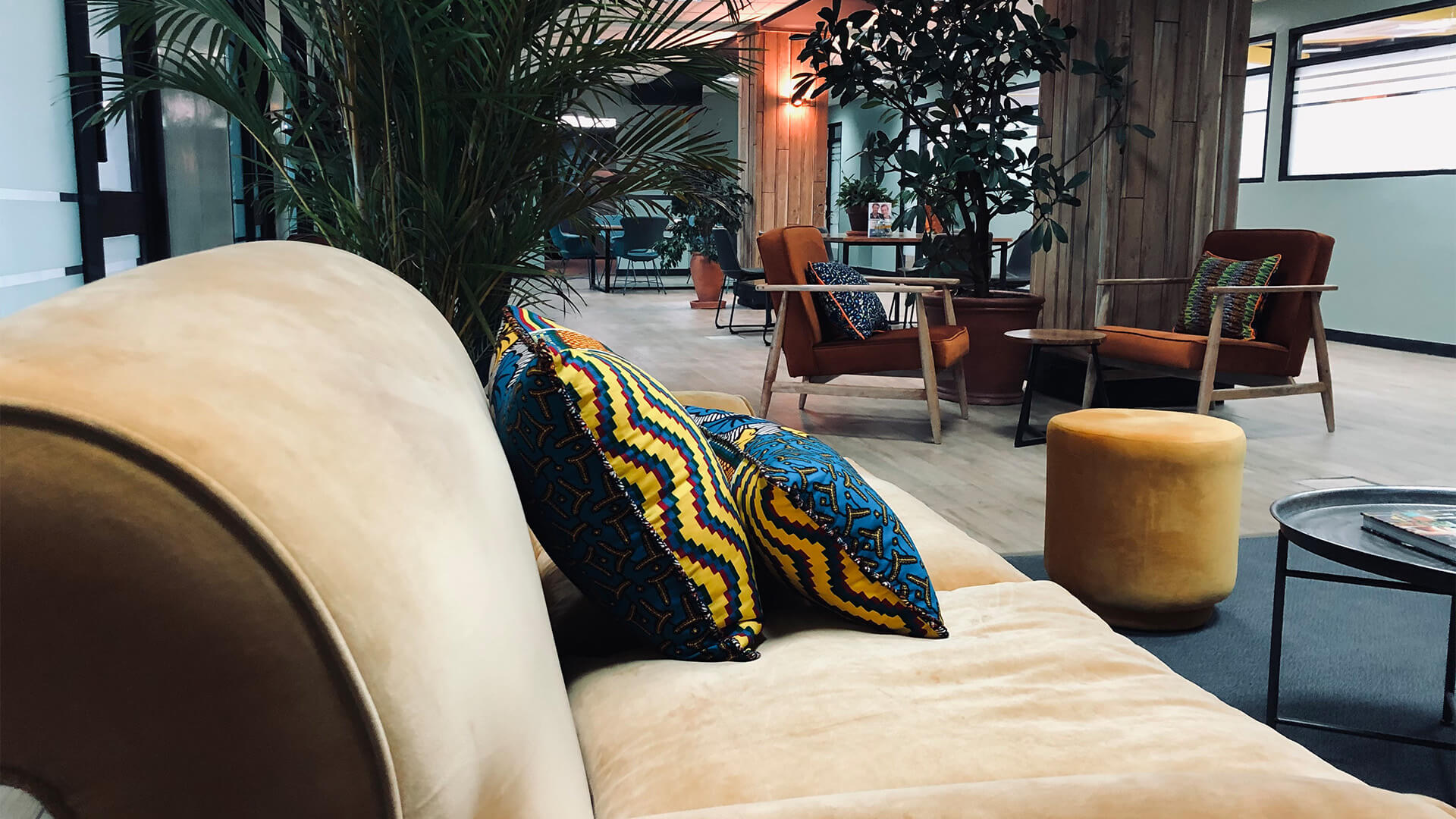What does it mean to be in the office in the 21st Century? To ten different organisations, you’ll find ten different answers. The team at KOFISI, however, have made it their mission to deliver truly incredible results to their clients. In MEA Markets’ African Excellence Awards 2022, the firm was recognised for their incredible achievements. We take a closer look at how they’ve risen through the ranks to such heights of success.
The office is a concept which has stood still for decades, but KOFISI stands apart as an organisation dedicated to bringing the idea of the office firmly into the 21st Century. As work evolves, peoples’ needs change, so too will their space requirements at the office. Empowering businesses of every size to make this change has been the mission of the KOFISI team, and it’s a mission that they’re succeeding at.
With eight centres strategically positioned across the continent, in Nairobi, Lagos and Dar Es Salaam, the team at KOFISI have been able to support businesses from every corner of industry. Whether developing a bespoke solution for large teams to congregate within or a fully furnished private office for teams of three or more staff members, they excel at delivering something special.
The need for the office has never gone away. Moving on from the COVID-19 pandemic people realised they still need to congregate to collaborate and communicate. As businesses have returned to the office, enterprise has been trying to make sure the office remains relevant in different ways. For KOFISI, the aim has always been to raise the bar when it comes to the quality of the office space provided for employees, workers and businesses operating in Africa. These are designed to be spaces that not only inspire and engage but enable productive business and working practises. It’s a clear investment from clients into their staff.
The support of KOFISI has made an enormous difference to lots of enterprises. Within each KOFISI Centre, there is a host of workspaces where teams are able to collaborate and connect. These include flexible desk areas, private booths, phone booths, meeting rooms, a media and podcasting studio as well as communal kitchens, cafes, a restaurant, outdoor terraces and large event and conference facilities. Since opening their doors, the team have put world class interior design at the heart of how they operate, but that’s not the only important factor.
Key to the way in which the team has expanded is the concept of hospitality-led work environments, delivering the sort of service that would only otherwise be found within a hotel. The KOFISI team provide front desk and reception services, bring free tea, coffee and refreshments to your desk, help with day-to-day administration such as printing and binding -services, booking taxis and food deliveries. They even have stunning on-site restaurants and rooftop cafes serving breakfast, lunch and dinner.
Office space plays such an important role in any business that the KOFISI design and build team are always determined to get in on the ground level of what is required from them within their space. Do they need special facilities? Can their brand be captured in the space? Do they need their own meeting rooms or a private kitchen? Will they need breakout rooms or phone booths? How many people will be working from the office on a regular basis? The list goes on and on, and only once these details have been settled can progress be made.
Since starting in this exciting industry, the team have built large spaces and complex facilities that have satisfied every single requirement that their clients have presented them with, even perfecting a laboratory for one of their clients. The team’s ability to deliver these stunning results, however, is realised once all of the information has been gathered. After this, it’s time to make a comprehensive creative brief and to hand that over to the KOFISI in-house interior designers to create something unique for their client.
The team’s work is extensive, and their experience in this industry allows the client to get more square footage of workspace than the traditional office model. Because space is shared, businesses can use outdoor flexible desk areas, members lounges, cafes and restaurants communally, sharing the costs between them. The floorplans for what the team develops is continually revised until total satisfaction is achieved. The team’s ability to deliver genuinely stunning workspaces, unparalleled in their level of sophistication, is almost entirely unique in Africa. It’ll come as no surprise, therefore, that the KOFISI team is in high demand indeed, with a long pipeline of enquiries and requests.
With more and more people wanting to work with KOFISI, it’s clear that African multinationals have begun to think about space more clearly. The arrival of Fortune 500 companies in the continent’s cities and towns means that more people are demanding services of an ever-higher standard. Working with landlords, the KOFISI team has been able to educate enterprise in how to make the most out of its square footage, evolving businesses ready for the future. The team is particularly proud of its efforts in disrupting the serviced office model. These once drab and very boring offerings have blossomed into a very exciting and colourful growth industry.
There was previous resistance to shared workspaces from landlords, with many not seeing the benefit of “space as a service”. As time has gone on, however, the realisation of what KOFISI offers has been seen as a major benefit to many. 10% of commercial office space in developed cities is shared, roughly one in ten floors of any new building. The potential of this new space is clear, offering strong footfall as a building establishes itself, creating “tenant tow” and offering substantial commercial upsides to landlords who partner with providers like KOFISI in the building. There has been an increase in those who have wanted to work alongside established brands like KOFISI over the years, as it gives them an extra value proposition to take to potential tenants.
Much of these has come through the implementation of “management contract” style arrangements, where both the landlord and the provider collaborate to deliver a space. KOFISI pioneered this way of thinking, delivering the first management contracts in Africa, repurposing older buildings for modern businesses and delivering the largest workspace centres in Africa’s newest additions to the city skylines. That there is a new way of thinking spreading across the continent is entirely down to this intrepid team.
With this changing approach at the heart of the firm, it’s little wonder that over the last year, the KOFISI team have been busier than ever before. Now the worst of the pandemic is over, businesses are returning to Africa and need office solutions. They can see that this is a region where there are enormous opportunities. In many ways, the pandemic has presented the team with a host of exciting new prospects, as more and more companies start to embrace alternative ways of working. Whilst previously, it would have been unthinkable not to have a specific office space, the flexibility of shared workspaces has allowed companies to match the flexibility demanded by their employees.
As companies have returned to the office, they’ve also seen the need to ensure that they are better suited to the needs of their employees in other ways. By consulting space experts such as those who work for the team at KOFISI, office space has become an investment in itself, designed to act as a more stimulating location to work with a higher quality than ever before. By scaling back on space and removing the capital investment of licensing space, corporate organisations have been able to achieve wonderful things.
The idea that keeps KOFISI at the forefront of this exciting new industry is a determination to uncover precisely what inspires people. This is why there has been such strong commitment to hospitality services, for example, which has proven to be wildly successful. The team works tirelessly to ensure that their clients have the best possible experience at all times. When you work with KOFISI, you essentially gain an assistant whose goal is to make sure you can focus on what you do best. When managing your own office, you need to consider maintaining that space. When you use a shared workspace under KOFISI, all of those burdens are lifted.
Working with KOFISI massively increases the flexibility of how a business can operate too. The firm’s events service provides clients with incredible outdoor and indoor event spaces for members to hold bespoke and unforgettable conferences and seminars. The team take the strain of offering the whole range of event services that might be required, from planning the event in detail to executing it with aplomb. Catering, marketing and hospitality are all taken care of, provided to a standard which will delight and astound even the most particular of guests.
With so much potential at the team’s fingertips, it seems like KOFISI is likely to continue its path of growth for a considerable while yet. Their success in the African Excellence Awards, however, is not their own triumph as of late. The team have recently been nominated as a finalist in the international, SBID Office Design Awards. KOFISI is in the mix with some very well-known office designers. Perhaps, the most significant factor in their nomination is that they were the only shared workplace provider on the African continent to reach this stage. Such an achievement shows not only that the team are more than able to hold their own, but that they are able to hold their own against international competition. If African excellence is to be found anywhere, it’s in this incredible company.
Looking forward to the future, the team at KOFISI have big plans for the rest of 2022. These plans will see them expanding their reach in Nairobi, Lagos and Dar Es Salaam, as well as in other gateway cities across Africa. The incredible demand for the team’s unique efforts has seen them being approached by some of the largest multi-national corporations who want to expand across the continent. The team at KOFISI see this as a sign that they’re doing something right!
KOFISI is an example of a business which is inherently disruptive. The work that the team undertakes has been transformative for many in these transformative times. Office space is a concept which cannot stay still, and the companies and landlords that are aware and able to keep up with these changes are the ones which will continue to thrive in the years to come. For many, it’s clear that KOFISI is going to be a core part of this change, providing the knowledge and expertise to design an office unlike any other and then to maintain it to the highest possible standards. We celebrate the team’s tremendous success in the African Excellence Awards, and cannot wait to see what they do next!
For business enquiries, contact Georgia Webber from KOFISI via email – [email protected] or on their website – https://kofisi.africa/


















